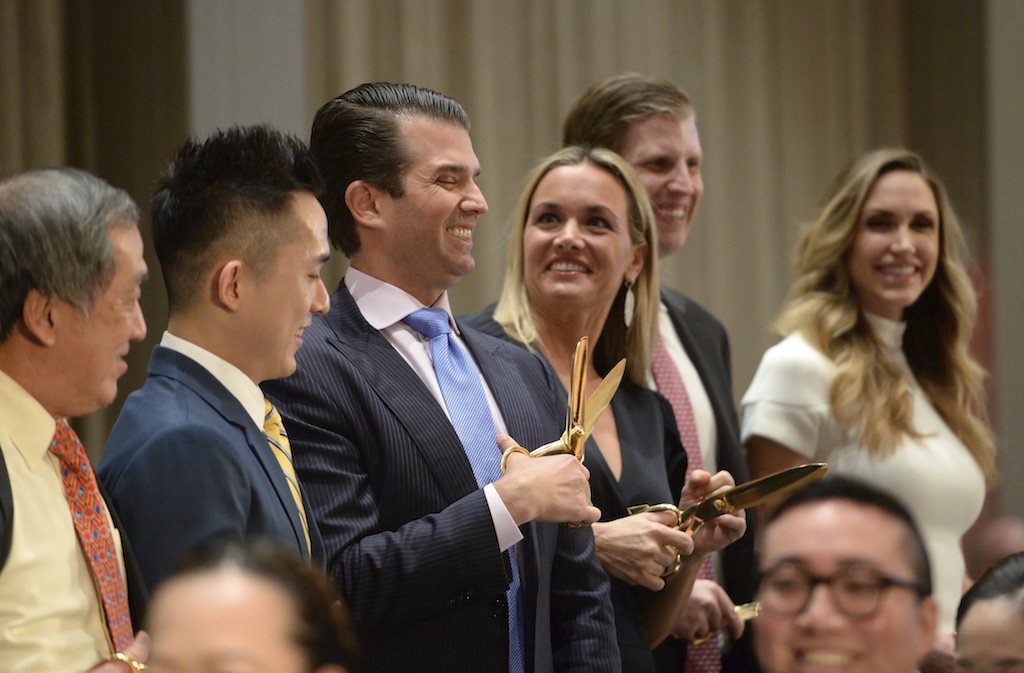News of Vanessa Trump’s impending divorce from Donald Trump Jr. raises an inevitable question: Once they’re no longer married, could Vanessa be forced to testify against her ex-husband? This is a hypothetical, of course. Junior has not been charged with any wrongdoing. Even so, this topic will undoubtedly get debated over many a cocktail this weekend. So, to prepare you, we offer this primer on spousal privilege and how it could apply in special counsel Robert Mueller’s Russia investigation. (To put it together, we talked to veteran criminal defense lawyer Biz Van Gelder, as well as two other experienced Washington defense lawyers who spoke on condition of anonymity. All three attorneys are former federal prosecutors.)
1. There are two kinds of spousal privilege.
The first is the spousal testimony privilege, which says that one spouse cannot be forced to testify against the other in a criminal investigation. This means that even if you see your husband or wife commit murder, the government can’t make you talk about it. But this privilege dissolves after a divorce. If you saw your husband commit murder, then divorced him, the government can now compel you to talk even if the crime happened while you were married.
More to the point: If he wanted to, Mueller could subpoena Vanessa Trump to testify about things she witnessed while married to Don Jr. once they are divorced.
2. But hold on, it’s actually not that simple!
The second kind of spousal privilege, called the marital communications privilege, survives after a divorce. It says that a spouse cannot be required, without the consent of the other spouse, to disclose “confidential communication” made during the course of their marriage, even after the marriage ends. And this privilege can be raised by either spouse, not just the one who’s been subpoenaed.
So, if Mueller—again, hypothetically speaking—subpoenaed Vanessa to talk about something Don Jr. told her during their marriage, Don Jr. could fight it. Even if Vanessa wanted to tell Mueller all about it, Junior could argue that he told her in confidence and it’s off limits.
3. However! There is considerable gray area here.
First, whether or not a communication was actually “confidential” can be contested. For instance, if a husband tells his wife something, but then also emails, say, his dad about the same thing, that thing is no longer confidential. The involvement of a third party breaks the confidence.
Secondly, this privilege only covers communications, not observations. So an ex-wife could still be compelled to testify about something she saw.
Finally, there is some speculation that Don Jr. and Vanessa have been separated. And there’s room for debate about whether communications during a separation—even if the spouses are still married—are confidential. One of the lawyers we spoke with put it this way: “I think [those communications] are fair game if they’re separated and she’s living apart with the children, and there’s no expectation they’re getting back together. …I think that’s wide open.”
4. In sum:
If Mueller believes that Vanessa has valuable information to share about her husband, the divorce could give him more leverage to get it. But it’s not a sure thing.



















